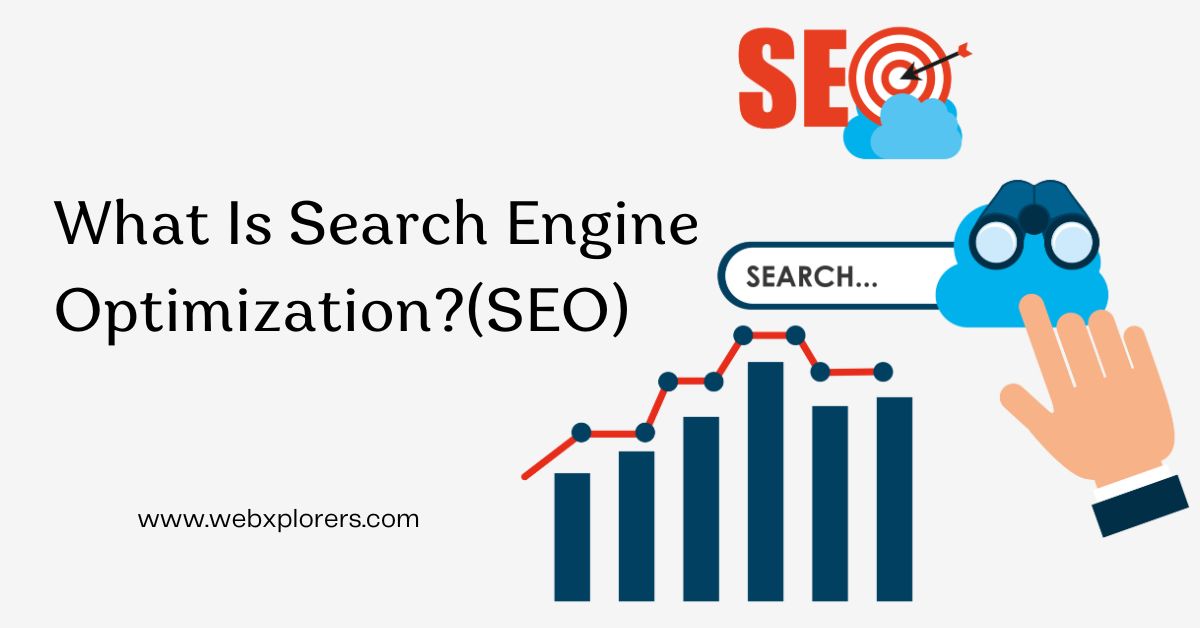Search Engine Optimization (SEO) is the practice of improving a website’s visibility on search engines like Google, Bing, and Yahoo. By optimizing your site, you can rank higher in search engine results pages (SERPs), attract more organic traffic, and enhance your online presence. For beginners, SEO may seem complex, but understanding its basics and benefits can significantly impact your digital strategy.
What Does SEO Stand For?
SEO stands for Search Engine Optimization. It encompasses strategies and techniques used to make your website more appealing to search engines, thereby increasing its chances of ranking high for relevant queries. SEO is a vital part of digital marketing that connects businesses with their target audience organically.
SEO for Beginners: Understanding the Basics
For beginners, SEO can be broken down into three core components:
- On-page SEO: Focuses on optimizing individual pages of your website. This includes using relevant keywords, creating high-quality content, and improving meta tags and headers.
- Off-page SEO: Involves activities outside your website, such as building backlinks, engaging on social media, and online reputation management.
- Technical SEO: Ensures that your website meets technical requirements like mobile-friendliness, fast loading times, and secure connections (HTTPS).
How SEO Works
Search engines use algorithms to analyze and rank web pages based on various factors. Here’s how SEO works:
- Crawling: Search engine bots (crawlers) scan websites to discover new or updated content.
- Indexing: The crawled content is stored in a database for future retrieval.
- Ranking: When a user enters a query, the search engine ranks indexed pages based on relevance, quality, and user experience.
SEO helps optimize your site for these processes, ensuring that your content is easily discoverable and ranks high in search results.
What Are The Types of SEO
There are three primary types of SEO:
01. On-page SEO:
This focuses on elements within your website, such as:
- Keywords: Integrating relevant keywords naturally into your content.
- Meta Tags: Writing compelling meta titles and descriptions.
- Content: Creating valuable, engaging, and optimized content.
- Internal Linking: Linking to other pages within your site for better navigation.
02. Off-page SEO
This involves external efforts to improve your website’s authority and reputation, such as:
- Backlink Building: Earning quality links from authoritative websites.
- Social Media Marketing: Promoting content on social platforms.
- Influencer Outreach: Collaborating with influencers to enhance reach.
03. Technical SEO
Technical SEO focuses on the backend of your website to improve its functionality, such as:
- Mobile Optimization: Ensuring your site is responsive.
- Page Speed: Reducing loading times.
- Secure Connections: Implementing HTTPS.
- Structured Data: Using schema markup to enhance search visibility.
Importance of SEO
SEO is crucial for businesses aiming to thrive in the digital world. Here’s why SEO is important:
- Increased Visibility: Higher rankings mean more visibility for your brand.
- Organic Traffic: SEO drives quality, free traffic to your site.
- Credibility and Trust: Ranking high builds trust with users.
- Better User Experience: SEO practices improve site usability.
- Cost-Effective: Unlike paid ads, SEO offers long-term value.
SEO Techniques and Best Practices
01. Conduct Keyword Research
- Identify the terms your audience is searching for and incorporate them strategically into your content.
02. Optimize On-Page Elements
- Use clear, descriptive titles and meta descriptions.
- Add relevant alt text to images.
- Include header tags (H1, H2, H3) to structure your content.
03. Create High-Quality Content
- Focus on solving user queries.
- Use engaging visuals and multimedia.
- Regularly update outdated content.
04. Build Backlinks
- Earn links from authoritative websites to boost your site’s credibility.
05. Improve Technical SEO
- Ensure fast loading speeds.
- Optimize your site for mobile users.
- Fix broken links and errors.
06. Monitor Performance
- Use tools like Google Analytics and Google Search Console to track your SEO performance and make necessary adjustments.
SEO Tips for Beginners
- Start with basic keyword research using tools like Google Keyword Planner or Ubersuggest.
- Optimize your website’s structure for better navigation.
- Focus on creating valuable and unique content.
- Promote your content on social media platforms.
- Keep an eye on competitors’ strategies and adapt accordingly.
- Stay updated with the latest SEO trends and algorithm changes.
Benefits of SEO
Investing in SEO provides numerous advantages, including:
- Increased Traffic: Attracts more visitors to your site.
- Better ROI: Delivers long-term results without recurring costs like ads.
- Higher Engagement: Improves click-through and conversion rates.
- Enhanced Local Reach: Helps local businesses appear in relevant searches.
- Competitive Edge: Keeps you ahead of competitors in your industry.
SEO Strategy: Building a Roadmap
Creating a solid SEO strategy involves:
- Setting Goals: Define what you want to achieve (e.g., increased traffic, more leads).
- Conducting Audits: Evaluate your website’s current SEO performance.
- Developing Content Plans: Create content aligned with user needs.
- Implementing Technical Fixes: Resolve issues affecting site performance.
- Tracking Results: Use analytics to measure success and refine strategies.
Search Engine Optimization Guide
Follow this step-by-step guide to start optimizing your website:
- Understand Your Audience: Research what your audience searches for online.
- Optimize Your Website: Ensure it is mobile-friendly, fast, and easy to navigate.
- Focus on Content: Publish consistent, high-quality content that provides value.
- Promote Your Content: Use social media and email marketing to drive traffic.
- Analyze and Adjust: Regularly monitor your performance and make improvements.
SEO Explained: Simplifying the Process
SEO may seem daunting at first, but breaking it down into actionable steps makes it manageable. By understanding how search engines work and aligning your website with their expectations, you can achieve better rankings and long-term success.
Conclusion
SEO is the cornerstone of a successful online presence. By implementing the right SEO techniques and strategies, you can enhance your brand’s visibility, attract quality traffic, and achieve your business goals. Whether you’re a beginner or looking to refine your approach, this guide provides a comprehensive overview to get started with Search Engine Optimization. Prioritize SEO today to build a stronger foundation for your digital success.

